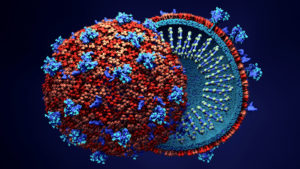German government slammed for lack of testing as mutant cases rise
 The German government’s plan to roll out mass testing as the country considers ways to ease out of lockdown has been delayed, leading to criticism from the political opposition and top economists on Tuesday.
The German government’s plan to roll out mass testing as the country considers ways to ease out of lockdown has been delayed, leading to criticism from the political opposition and top economists on Tuesday.
Health Minister Jens Spahn announced last week that all citizens would be offered rapid antigen testing for free at facilities across the country, in specially established centres as well as existing chemists and practices, from March 1.
However, government spokesman Steffen Seibert said on Monday that the proposal would first be discussed on March 3, when Chancellor Angela Merkel is to hold her next round of lockdown talks with regional leaders.
“It is indicative of Mr Spahn’s incapacity that the rapid testing strategy is to be delayed again,” said Anton Hofreiter, who leads the Greens’ group in parliament.
A discussion on easing restrictions, which include sweeping business closures and strict limits on socializing, must go hand in hand with more testing, Hofreiter argued.
“Therefore I expect of this government that after a year of pandemic it is finally in a position to meet such basic requirements,” he added.
Clemens Fuest, president of the ifo economic research institute in Munich, said it was a “tremendous failure” on the part of politicians that a testing strategy had not yet been set up.
Germany needs a plan for testing, tracing and isolating in order to emerge from lockdown, Fuest said in an online event on Tuesday hosted by the Foundation for Family Businesses.
Gabriel Felbermayr, president of the Kiel Institute for the World Economy, said it was “appalling” how few tests were conducted in the country.
Meanwhile, almost one in three coronavirus patients have contracted the more contagious variant first identified in Britain, laboratories said on Tuesday.
Around 30 per cent of positive cases contracted the variant called B117, the association of medical laboratories ALM said.
This figure had previously risen from 6 per cent to 22 per cent in two weeks, according to the Robert Koch Institute (RKI) for disease control.
Experts said while the rate of positive tests had declined, the increased proportion of more contagious variants could be behind the recent stagnation in case numbers, which had previously been falling.
On Tuesday, 3,883 new coronavirus infections and 415 virus-related deaths were reported by the RKI. Almost 2.4 million people have contracted the coronavirus in Germany and 68,318 have died, according to RKI figures.
Source: GNA
